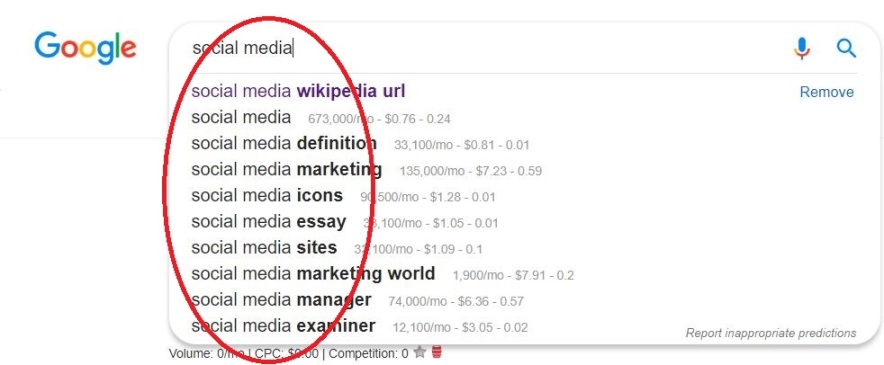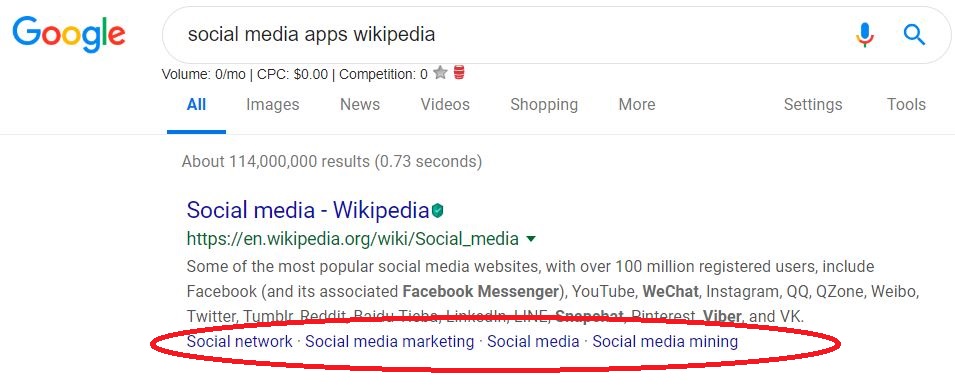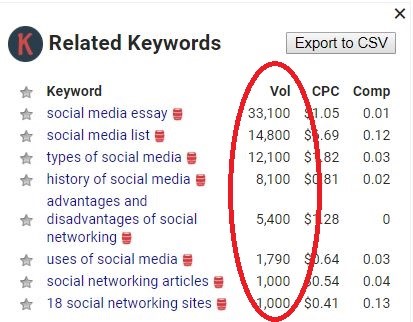Imagine you need a kitchen widget, so you fire up Amazon.com and type in “kitchen widget” and hit the return key. You find the kitchen widget you like in the color that matches your other widgets, put it in your shopping cart and buy it. The words, “kitchen widget” that you typed into the search bar are keywords.
Keyword research is about knowing which words are typed in the most, how many people are typing in those exact words, and how many businesses are competing to target those same exact words. Analyzing these factors can tell you which terminology to use to target your ideal customers to buy that specific kitchen widget.
How Does Keyword Strategy Work?
It’s not an exaggeration to say that there is no such thing as Google search engine optimization, or SEO, without keywords. Keywords help you identify the needs, thoughts, motivations and fears of your customers and target audience; and then, like a compass, tell you where to go.
To get started with finding good keywords, ask yourself some question:
What makes my business unique and sets it apart from others?
What is the mission of my company? — Our core values?
What products or services am I offering to consumers?
What are my customers’ main problems and what are my solutions?
Keyword Research Definition
Keyword research helps determine the best terminology to use in your content. Then you place these words and phrases strategically, so that Google puts your website higher on the search engine results page, improving its visibility and bringing you more customers. This puts you ahead of the competition, because now when potential clients enter a search inquiry relating to your business, they find your website on Page 1.
For example, if you have a chimney construction company, ideally you would want your website to appear at the top of Google Page 1 search results for the keyword, “chimney construction” in your local city. You might use keywords that people are typing into Google, like “chimney construction Tulsa OK” or “Tulsa chimney contractors,” and other variations of service + location. These targeted keywords are one example of how to attract customers in your local area who are looking for your service or product. The results of targeting can be even more effective in the long run than paid advertising.
Choosing Keywords
Visualize Your Audience | Buyer Personas
The first step in selecting keywords for your content is to visualize your ideal buyers, which is called a buyer persona. Consider their demographics, interests and concerns. Think about what questions they might ask in searching for your product or service.
Keyword Research Tools You can Learn to Use
There are many apps and software programs, both free and paid, to help you to find keyword suggestions. The Google search box itself is one of them. Just try it, as pictured below.

Or try Wikipedia.

Understanding Keyword Search Volume and Keyword Competition
Search volume is the number of times that a word or phrase is searched for on Google over one month’s time. The level of competition for that keyword is shown by a decimal value, representing the level of competition for that particular word or phrase. Using keyword strategy, we are looking for the ones with higher traffic and lower competition.
Keywords Everywhere is an example of a free application that gives ideas for keywords and phrases, and also shows you the search volume and competition for any word or phrase you enter.

Choosing Profitable Keywords
You want to choose keywords with high traffic (the number of people who are typing in those specific words), but if you choose a one-word term with huge volume, it’s very likely that your site will be lost in the deluge of other sites that also use this same keyword.
At the same time, if your keyword phrase is too long and specific, it will reduce the web traffic to almost nothing. So, you want to find a happy medium, generally two-to-four-word phrases.
How Many Times should I Use a Keyword?
In the past, some websites engaged in a practice known as “keyword stuffing,” which means they are putting their keywords everywhere on the page in titles and paragraphs to grab a top place on the Google search engine. However, this is not how people write naturally.
Nowadays, Google’s algorithms can spot keywords that have been overused and penalize a page for doing that. It’s database looks for and compares natural sounding text by judging keyword density, which is the percentage of a certain keyword in an article or webpage as compared to the total number of words on the page.
The best practice is to place the main keyword you want to rank for in your Page Title and then don’t keep repeating it in other titles – use natural variations and other highly-relevant terms in your business niche. Using a variety of related keywords is the way to go.
The End Goal of Successful Keyword Research
The goal of keyword research is to increase not only traffic on your site, but also customer conversion. It’s not just about numbers and getting visitors of all kinds, but rather, building quality web traffic by targeting the ideal people who are searching for your specific products or services in your city, and who are most likely to decide to become your clients.
Despite the multitude of keyword research tools out there, a lot of creative thought power and professional expertise is still required for effective keyword research strategy that results in truly productive and profitable marketing.


